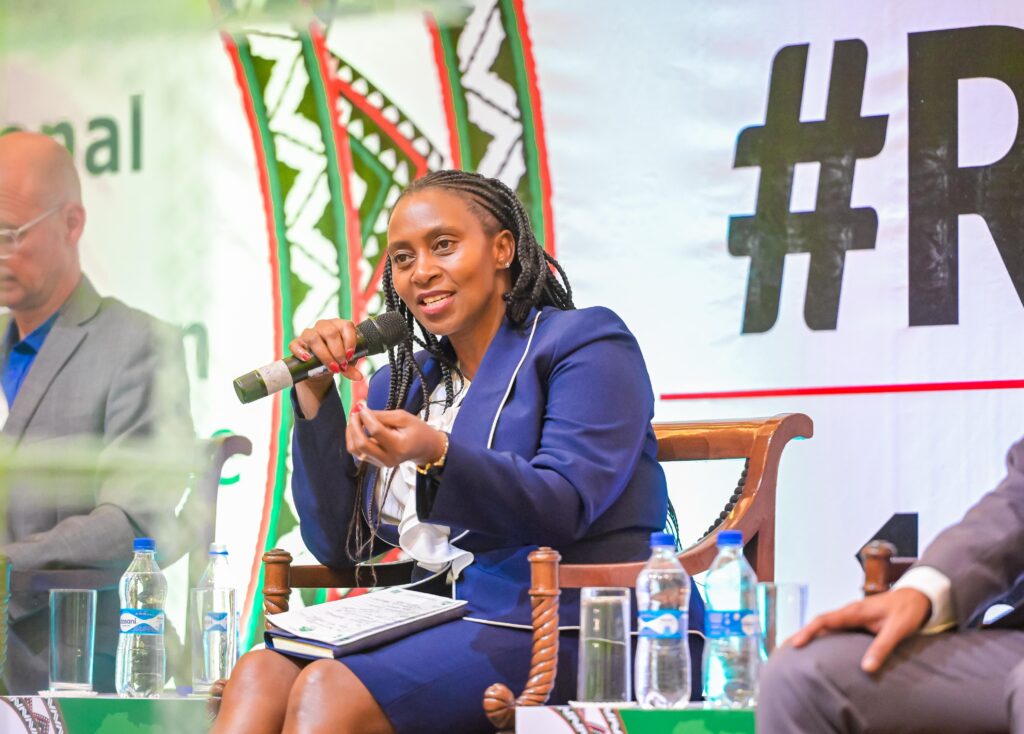Kenya is hosting the Regional Health Promotion Conference (RHPC 2025) under the theme “Empowering Communities for Inclusive Universal Health Coverage through an Intersectional Approach.” The conference brings together experts, policymakers, and stakeholders to advance health promotion as a key driver of Universal Health Coverage (UHC).
While officially opening the conference, the Principal Secretary for the State Department for Public Health and Professional Standards emphasized the critical role of health promotion in preventing diseases, reducing healthcare costs, and ensuring healthier communities. She highlighted the government’s deliberate shift from a curative to a preventive healthcare model, citing the deployment of 107,831 Community Health Promoters across all 47 counties and the establishment of Primary Care Networks to enhance healthcare access at the grassroots.
Health promotion is not just a strategy; it is the foundation of Universal Health Coverage. By investing in community-driven healthcare solutions, Kenya is empowering individuals and families to take charge of their health. Through multi-sectoral collaboration, innovative financing, and digital health solutions, healthcare is becoming more accessible, affordable, and inclusive.
The government’s efforts align with global best practices, recognizing that a strong emphasis on health promotion leads to improved public health outcomes. Prevention-based interventions reduce the burden on healthcare facilities and minimize costs associated with treating preventable diseases. The expansion of community health programs and the adoption of technology-driven solutions are expected to create a more resilient and responsive healthcare system.
One of the key focus areas of the conference is leveraging digital health solutions to enhance service delivery. The integration of telemedicine, mobile health applications, and data-driven decision-making tools has revolutionized healthcare, enabling more people to access essential services regardless of their location. Digital innovations are bridging gaps in service delivery, especially in remote and underserved areas.
Additionally, stakeholders are emphasizing the importance of multi-sectoral collaboration in health promotion. Achieving UHC requires the involvement of various sectors, including education, agriculture, water and sanitation, and social services. By addressing the social determinants of health such as nutrition, clean water, and safe housing governments and partners can create an environment where communities thrive.
The government is also calling on stakeholders to explore innovative financing mechanisms to support health promotion initiatives. Sustainable funding models, including public-private partnerships and community-based health insurance schemes, are being discussed as viable options to ensure long-term success. Investing in prevention and community-based healthcare models is not only cost-effective but also crucial for achieving equitable health outcomes.
As the conference progresses, participants are sharing best practices, research findings, and policy recommendations to strengthen health promotion strategies. The exchange of knowledge and experiences is expected to inform policy development and implementation, shaping the future of healthcare in the region.
The commitment to health promotion is evident in Kenya’s ongoing initiatives to strengthen primary healthcare and enhance community engagement. By prioritizing prevention, integrating technology, and fostering collaboration, the country is making significant strides toward achieving Universal Health Coverage. The outcomes of this conference are expected to influence regional and global health policies, driving sustainable and inclusive healthcare solutions for all.

